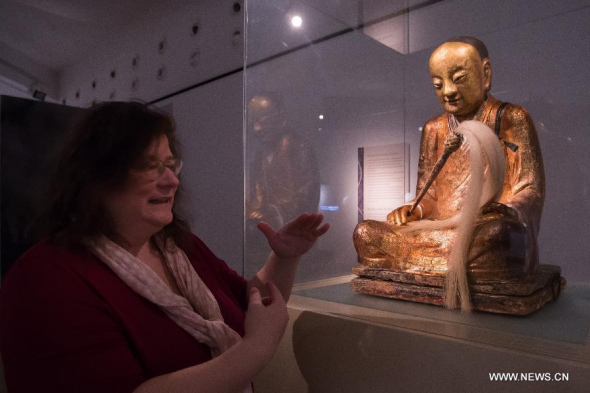 |
|
A Chinese Buddha statue with the mummified body of a Buddhist monk inside is on display at the Hungarian Natural History Museum in Budapest, Hungary on March 3, 2015. [Photo/Xinhua] |
The statue attracted attention after a CT scan last year found it contained a mummy of a 12th century Buddhist monk. The monk sits on a pillow that is around 300 years older.
Chinese characters are written on the side of the pillow, which say the monk's name was Zhang Liuquan.
The Buddha statue was included in a "Mummy World" exhibition at the Hungarian Natural History Museum, which opened in October last year. It was originally scheduled to be on display until May 17.
The Hungarian Natural History Museum borrowed the statue from the Drents Museum in Assen, the Netherlands. On March 20, the Dutch owner withdrew the statue from the exhibition in order to "calmly and critically evaluate the unexpected situation," said a statement sent to Xinhua by the owner's spokesman.
According to Yangchun archives, a monk, living in the village in the Song Dynasty (960-1279), helped cure people with his knowledge of Chinese herbal medicine. When he died, his body was mummified and local people made a statue to hold his body.
The statue was worshipped as an icon.
The collector was once offered 10 million euro for the statue, but declined to sell it despite the impressive sum. If the statue is indeed the one stolen from China, the collector is willing to return the statue, but wishes that it would return to the village where it was originally worshipped, instead of to showcases at museums.